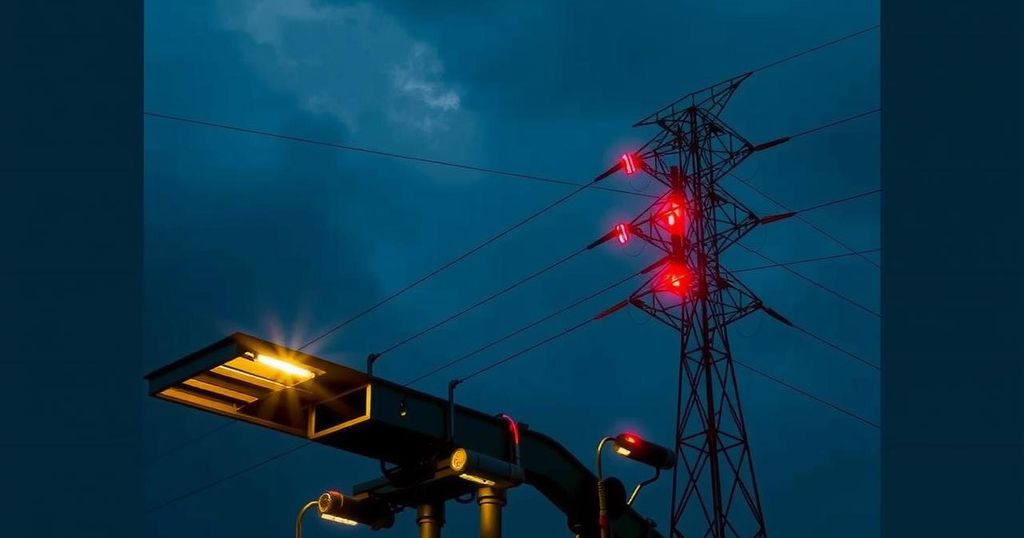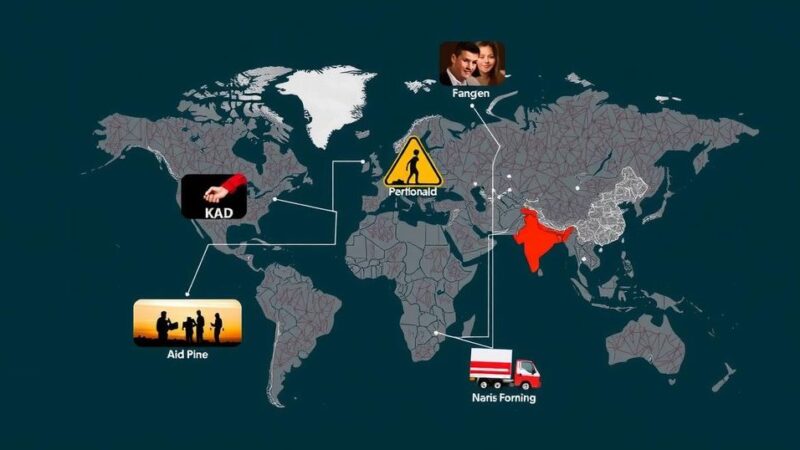Cuba faces a third consecutive day without power as Hurricane Oscar approaches, complicating recovery efforts after multiple nationwide blackouts. With only 16% of the power restored, the situation poses significant challenges to public health and daily life, leading to increased frustration among residents. The crisis stems from an aging energy grid and exacerbated by natural disasters and economic sanctions.
As Hurricane Oscar approaches Cuba, millions of residents continue to endure power outages for the third consecutive day, following unsuccessful efforts to restore electricity. The Cuban Electric Union reported that only 16% of the country had its power reinstated before the aged energy infrastructure suffered another failure late Saturday. Consequently, Cuba has faced three widespread blackouts since Friday, significantly disrupting daily life for its 10 million inhabitants. Compounding these issues, Hurricane Oscar made landfall on Inagua Island in The Bahamas with maximum winds of 80 mph. Forecasters predict it will impact the northeastern coast of Cuba later today, with potential for significant damage despite expected weakening after landfall. The storm poses an additional challenge to recovery efforts by threatening the already tenuous power supply essential for water and food preservation. On Friday, Cuba’s energy grid experienced its first total blackout due to the failure of a major power plant. Though officials indicated that power was being gradually restored, a second nationwide blackout occurred the subsequent morning, exacerbating the crisis. In Havana, residents are struggling with access to basic necessities such as bread, leading to long queues and tensions among those waiting. Many have taken to communication platforms to share information regarding power availability and locate safe storage for medications requiring refrigeration. Despite ongoing turmoil, tourists still traverse Havana in vintage cars, although hotel generators are running low on fuel, creating further complications. José Martí International Airport in Havana reportedly operates solely on emergency power, causing significant operational challenges. Small protests have erupted in response to the crisis, reflecting public dissatisfaction amid blames directed at the confluence of events impacting the electrical grid, including U.S. economic sanctions and infrastructure decay. In a delayed televised address, Cuban Prime Minister Manuel Marrero Cruz acknowledged that the government had halted substantial portions of economic activity to maintain essential electricity supply for the populace. Health services continue under generational power, according to Health Minister José Angel Portal Miranda.
Cuba’s energy crisis has been exacerbated by annual hurricane seasons, aging infrastructure, and economic sanctions, notably from the United States. The nation relies heavily on oil supplies from traditional allies, including Venezuela, which have been increasingly difficult to secure. The combination of natural disasters, infrastructure challenges, and geopolitical constraints has led to severe disruptions in the energy sector, culminating in repeated blackouts that affect health services, food preservation, and overall societal stability. Recent hurricanes have inflicted additional damage to power plant operations, complicating recovery efforts and highlighting the vulnerabilities within a struggling energy grid.
The ongoing power crisis in Cuba illustrates the profound interconnectedness of natural disasters, economic challenges, and public health concerns. As Hurricane Oscar approaches, the urgency for reliable energy supply becomes increasingly critical. The compounded effects of repeated blackouts, dwindling resources, and public unrest underscore the need for comprehensive solutions to revitalize and modernize Cuba’s energy infrastructure. The government’s attempts to prioritize the population’s power needs by halting economic activities reflect a dire situation that requires both immediate and long-term action.
Original Source: www.cnn.com






